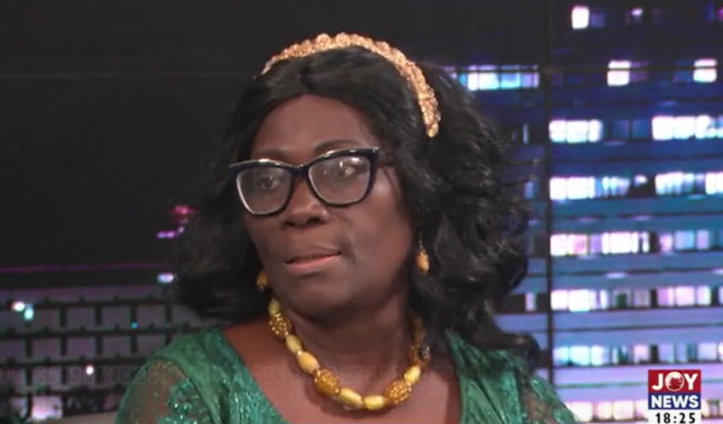A Medical Sociologist and Public Health Expert, Rev. Prof. Yaa Adobea Owusu, has advised against the government’s plan to replace textbooks in Senior High Schools with tablets.
Speaking on Upfront on JoyNews, she stated that despite the advancement of technology globally, there are many challenges that hinder this plan including electricity and internet issues that many communities face.
Hence, it will be tough for many students in rural areas especially to use the tablets to their full capacity which could greatly affect their studies, Prof Owusu told the host Raymond Acquah, on Wednesday.
“I will not personally think that our priority should be on tablets instead of textbooks. We are even talking about the ability of a child to carefully handle this especially if you are walking over a distance to school,” she said.
Prof Owusu added that “technology is advancing everywhere in the world and it is good for Ghana to catch up, that will be very good. But with tablets, we are probably also talking about electricity and connectivity and I don’t think that all these are available now. With the textbook, it is not dependent on some of these issues that we have mentioned.”
In May 2023, the Vice President, Dr. Mahamudu Bawumia, announced that the government through the Ministry of Education is preparing to replace textbooks with laptops in Senior High Schools nationwide.
He said textbooks and other teaching and learning materials would be installed on the tablets to be used during lessons.
Speaking at the 60th Anniversary celebration of the Hohoe Evangelical Presbyterian Senior High School, Dr. Bawumia said the initiative would be implemented before the end of 2023.
He noted that it is aimed at preparing the students to fit into the global village.
However, the Institute of Statistical, Social and Economic Research’s Dr Michael Kodom, believes that it will serve students better to build more ICT labs and equip them with modern and adequate computers.
He explained that the children will learn better about technology when these labs are made available rather than tablets.
Dr Kodom said “there are some rural areas where electricity is a problem, even people are still struggling with basic chairs to sit on. The child can easily take his textbook, go home and read.”
Latest Stories
-
Syria’s minorities seek security as country charts new future
7 minutes -
Prof. Nana Aba Appiah Amfo re-appointed as Vice-Chancellor of the University of Ghana
14 minutes -
German police probe market attack security and warnings
14 minutes -
Grief and anger in Magdeburg after Christmas market attack
15 minutes -
Baltasar Coin becomes first Ghanaian meme coin to hit DEX Screener at $100K market cap
1 hour -
EC blames re-collation of disputed results on widespread lawlessness by party supporters
1 hour -
Top 20 Ghanaian songs released in 2024
2 hours -
Beating Messi’s Inter Miami to MLS Cup feels amazing – Joseph Paintsil
2 hours -
NDC administration will reverse all ‘last-minute’ gov’t employee promotions – Asiedu Nketiah
2 hours -
Kudus sights ‘authority and kingship’ for elephant stool celebration
2 hours -
We’ll embrace cutting-edge technologies to address emerging healthcare needs – Prof. Antwi-Kusi
3 hours -
Nana Aba Anamoah, Cwesi Oteng special guests for Philip Nai and Friends’ charity event
3 hours -
Environmental protection officers receive training on how to tackle climate change
3 hours -
CLOGSAG vows to resist partisan appointments in Civil, Local Government Service
4 hours -
Peasant Farmers Association welcomes Mahama’s move to rename Agric Ministry
4 hours

